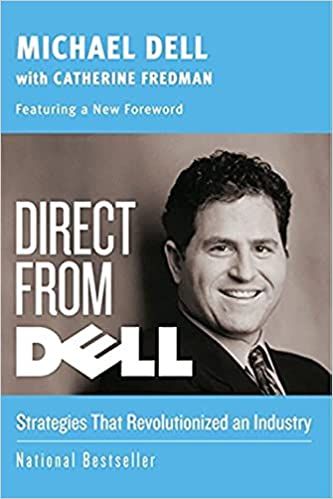You read about a product on Twitter or Product Hunt. You click through and visit the product’s website. You watch a 2-minute explainer video. You like what you see. You sign up for it.
When I started out in enterprise software in the mid-1990s, I never dreamt that a day would come when you’d get a free trial for an ERP software. But here we are:
I must admit that I got a culture shock when I saw the above banner ad on SAP’s website for a 30-day trial of its SAP S/4HANA Cloud Private Edition ERP software.
It’s a no brainer that the Internet has enabled sellers and buyers to connect directly with each other.
From this, it’s tempting to jump to the conclusion that IT companies don’t require resellers in the present digital age.
For the uninitiated, a reseller sells a manufacturer’s product to the customer. As the name suggests, the reseller buys the product from the manufacturer and sells it to the customer.
A reseller is also known by a few other names such as dealer, channel partner, business partner, etc. A manufacturer also goes by alternative terms like principal, brand, vendor, etc.
Principals compensate dealers by way of commission / reseller margin. Commissions vary by industry, geography, product, and many other factors but are typically in the 10% to 25% range in the IT industry.
It’s fashionable for many resellers to call themselves Value Added Reseller.
But Reseller <> Value Added Reseller.
A VAR adds value to the core product before supplying it to the end-user. Value addition can came in various forms like extensions, customizations, integrations, training, data conversion, and so on. Whereas a pure reseller does not do any value addition to the core product.
Internet or no Internet, the role of a VAR is self-evident. This blog post is not about them. It’s about “pure reseller”, whose role is what is being questioned in the digital age.
We define a pure reseller as a company who buys gear from the likes of Dell, HPE, IBM, Cisco, and Microsoft and sells them to end customers without making any modifications to the core product. (This is not to take away a pure reseller’s contribution by way of solutioning and other activities before the sale but these are presales activities and do not increase the selling price of the products of these leading IT hardware, networking and system software vendors and are therefore not counted towards value addition in strict commercial terms.) In the rest of this post, we’ll use the term “reseller” to refer to a pure reseller.
The fundamental question is, why can’t customers be allowed to buy the product directly from the principal (and escape the reseller’s gatekeeping)? In other words, why can’t the principal sell the gear directly to customers (and save the commission paid to resellers)?
They can and many small and medium manufacturers do.
Even some large brands have attempted to sell directly. Take Dell for example.
 In the early days of the Internet, the IT major had a 100% direct selling model called Dell Direct (or was it Direct from Dell?) where customers would visit its website, configure their servers and other products, get a quote, and place the order. The company would assemble the ordered configuration and ship the product directly to the customer.
In the early days of the Internet, the IT major had a 100% direct selling model called Dell Direct (or was it Direct from Dell?) where customers would visit its website, configure their servers and other products, get a quote, and place the order. The company would assemble the ordered configuration and ship the product directly to the customer.
As an aside, it’s not only Dell – I remember configuring a BMW on the bmw.de website in circa 1998.
#FunFact: The software used to configure products online is called Configure-Price-Quote.
In the early 2000s, Dell was hailed as a disruptor in the computer industry, which traditionally sold via channel partners. Dell Direct worked – until it didn’t.
In January 2007, Dell had lost its No. 1 position in worldwide PC shipments to HP – CaseStudyInc.
In the aftermath of this setback, Dell abandoned the direct selling model and invested in building a reseller network.
After hyping up direct selling via the Internet for over a decade, Dell honchos suddenly started singing praises of indirect selling via channel partners.
Some people thought the change of tune was the height of hypocrisy but it is cited as one of the greatest success stories of organizational transformation in modern times – by 2011, Dell regained its #1 position in PC shipments. (A more recent org-trans success story is Adobe’s switch from onprem / license to cloud / subscription model for Photoshop, Illustrator etc.)
It also speaks to the power of reseller networks.
It’s self-evident that the IT industry requires resellers even in the current digital age. Lest there still be any doubters left, let me cite Amazon: The digital native company uses a reseller network to sell subscriptions for its cloud platform Amazon Web Services (AWS).
In a follow-on post, we’ll advance some reasons for this apparent paradox. Watch this space!

